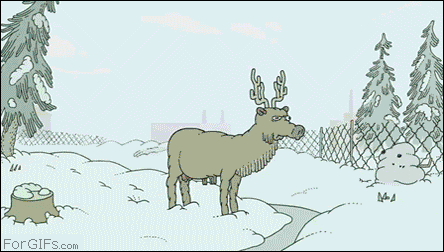(Post Track:
Kulning - Ancient Swedish Herdingcall)
This is a thread about Daniel C. Peterson.
Daniel Peterson wrote:A famous and somewhat enigmatic fragment from the ancient Greek poet Archilochus says that “The fox knows many things, but the hedgehog knows one big thing.” It is my professional obligation, as a scholar, to know many things. (I wish I knew many more than I do.) But it has been the most fulfilling joy of my life to know one big and very important thing. The nineteenth-century zoologist Ernst Haeckel is reported to have said that, if he could have just one question definitively answered, it would be, Is the universe friendly? My experience, my reason, and the teachings of modern prophets and apostles all concur in testifying that it is.
Perhaps it is better to say this is a thread concerned with what Daniel Peterson writes about. The words quoted above constitute the final paragraph of Daniel’s testimony as it has been preserved on the FAIRMormon website under the rubric of ‘
Mormon Scholars Testify’. Here we see Daniel communicating to readers that he fancies himself a fox by profession (scholar) and a hedgehog by confession (Mormon).
Archilochus’ “somewhat enigmatic” proverb and this distinction between the fox and hedgehog is also invoked on Daniel’s blog (albeit indirectly). On a post memorializing Charley Townes titled ‘
Faith and Postulates’ we find, tacked on to the end, a quote from Freeman Dyson who makes use of the same proverb:
Freeman Dyson wrote:Scientists come in two varieties, hedgehogs and foxes. I borrow this terminology from Isaiah Berlin (1953), who borrowed it from the ancient Greek poet Archilochus. Archilochus told us that foxes know many tricks, hedgehogs only one. Foxes are broad, hedgehogs are deep. Foxes are interested in everything and move easily from one problem to another. Hedgehogs are only interested in a few problems that they consider fundamental, and stick with the same problems for years or decades. Most of the great discoveries are made by hedgehogs, most of the little discoveries by foxes. Science needs both hedgehogs and foxes for its healthy growth, hedgehogs to dig deep into the nature of things, foxes to explore the complicated details of our marvelous universe. Albert Einstein and Edwin Hubble were hedgehogs. Charley Townes, who invented the laser, and Enrico Fermi, who built the first nuclear reactor in Chicago, were foxes.
Actually this isn’t just a thread about the things Daniel Peterson writes, but also how the things Daniel Peterson writes about relate to the topics themselves. Notice that Dyson references the Russian scholar Isaiah Berlin as the inspiration for cataloguing 20th century scientists as either foxes or hedgehogs; I think it might be instructive to see for ourselves what Isaiah Berlin was saying about Archilochus’ proverb:
Isaiah Berlin wrote:There is a line among the fragments of the Greek poet Archilochus which says: ‘The fox knows many things, but the hedgehog knows one big thing.’ Scholars have differed about the correct interpretation of these dark words, which may mean no more than that the fox, for all his cunning, is defeated by the hedgehog’s one defence.
So opens a famous essay written by Isaiah Berlin; first published as a book in 1953 by Weidenfeld & Nicolson with the unceremonious title ‘The Hedgehog and the Fox: An Essay on Tolstoy’s View of History’. To say Berlin’s essay was influential would be a bit of an understatement and the distinction has been adopted by so many authors from every conceivable discipline that I’d feel safe calling it academic trope, so it is no surprise to me that Daniel saw fit to close his testimony with a reference to it. Berlin actually included the text of the fragment in a footnote so I have done something similar below (courtesy of the Loeb Classical Library), and please, mind the bolding:
Fragment 201 wrote:Zenob. 5.68 (Paroem. Gr. i. 147.7 L.-S.)
πόλλ᾿ οἶδ᾿ ἀλώπηξ, ἀλλ᾿ ἐχῖνος ἓν μέγα./The fox knows many tricks, the hedgehog one, but it’s a big one.
μέμνηται ταύτης Ἀρχίλοχος ἐν ἐπῳδῇ, γράφει δὲ καὶ Ὅμηρος τὸν στίχον…λέγεται δὲ ἡ παροιμία ἐπὶ τῶν πανουργοτάτων./Archilochus mentions this proverb in an epode and Homer also writes the line…The proverb is said of the greatest scoundrels.
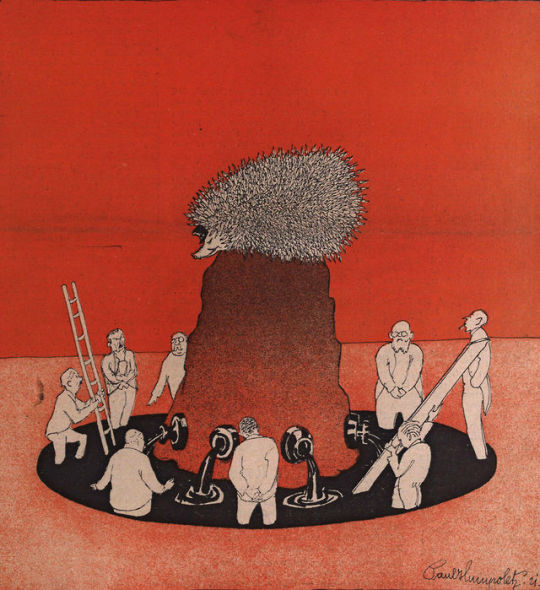
But we should get back to Berlin and let him flesh out this distinction between fox and hedgehog since he does so more than either Daniel or Freeman:
Isaiah Berlin wrote:But, taken figuratively, the words can be made to yield a sense in which they mark one of the deepest differences which divide writers and thinkers, and, it may be, human beings in general. For there exists a great chasm between those, on one side, who relate everything to a single central vision, one system, less or more coherent or articulate, in terms of which they understand, think and feel – a single, universal, organising principle in terms of which alone all that they are and say has significance – and, on the other side, those who pursue many ends, often unrelated and even contradictory, connected, if at all, only in some de facto way, for some psychological or physiological cause, related to no moral or aesthetic principle. These last lead lives, perform acts and entertain ideas that are centrifugal rather than centripetal; their thought is scattered or diffused, moving on many levels, seizing upon the essence of a vast variety of experiences and objects for what they are in themselves, without, consciously or unconsciously, seeking to fit them into, or exclude them from, any one unchanging, all embracing, sometimes self-contradictory and incomplete, at times fanatical, unitary inner vision. The first kind of intellectual and artistic personality belongs to the hedgehogs, the second to the foxes; and without insisting on a rigid classification, we may, without too much fear of contradiction, say that, in this sense, Dante belongs to the first category, Shakespeare to the second; Plato, Lucretius, Pascal, Hegel, Dostoevsky, Nietzsche, Ibsen, Proust are, in varying degrees, hedgehogs; Herodotus, Aristotle, Montaigne, Erasmus, Molie`re, Goethe, Pushkin, Balzac, Joyce are foxes..
Now I observed that for the vast majority of authors who decide to use the fox and hedgehog distinction do so with the intention of sorting two different kinds of people, yet Daniel saw fit to apply both categories to himself. What does this reveal about Daniel Peterson? Does he understand himself to be like Dante while also like Shakespeare? Is he both Albert Einstein and Enrico Fermi?
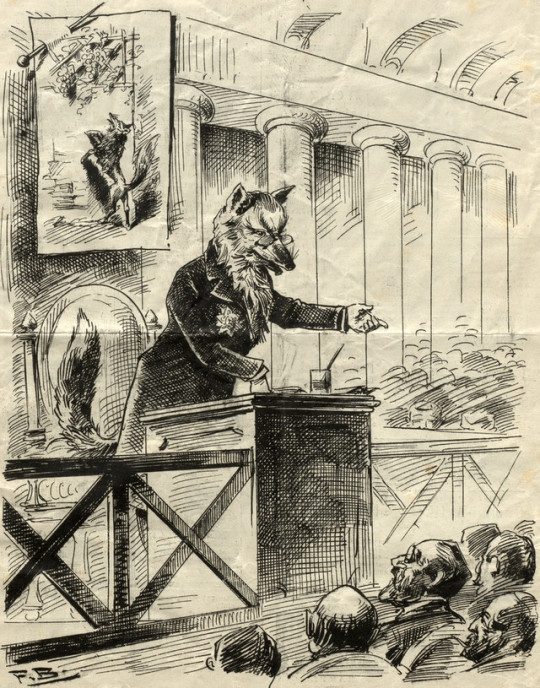
Taken alone this observation means little and I only intend it to be the first among a multitude of examples of how Daniel understands himself as a scholar and as one of the more histrionic members of the Mormon intelligentsia (such as it is). Yet this observation affords me the opportunity to say that I think Daniel is neither a hedgehog or fox, rather he is a third category.
Isaiah Berlin wrote:Of course, like all over-simple classifications of this type, the dichotomy becomes, if pressed, artificial, scholastic and ultimately absurd. But if it is not an aid to serious criticism, neither should it be rejected as being merely superficial or frivolous; like all distinctions which embody any degree of truth, it offers a point of view from which to look and compare, a starting-point for genuine investigation.
Daniel Peterson is a lolcow.
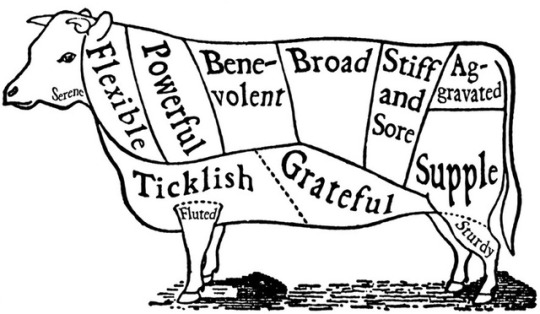
A lolcow is a person who has a presence on the internet who can predictably be prompted to engage in ridiculous behavior for the enjoyment of a broader community; thus the individual being baited into action is “milked” for the amusement or laughter of others. At first glance a lolcow simply appears to be a victim of trolling, indeed many famous lolcows come to the attention of internet denizens through acts of trolling. What separates a lolcow from your usual trolling victim is that the lolcow will ultimately form a symbiotic relationship with their trolls because they fundamentally misconstrue the nature of the attention they receive. There are three broad traits a person must possess before ascending to lolcow form.
The first trait one must posses is unwarranted sense of self importance. The lolcow might feign humility at times when it is expected, but only as a means to an end. The lolcow truly believes themselves to be a unique person with special talents and therefore merit people’s attention (or donation money). The stark reality is often that the lolcow has marginal to mediocre skills and the only outstanding character trait they actually possess is their lack of creativity commensurate with their grandiose sense of purpose.
The second trait is an almost total lack of self awareness. Lolcows are often oblivious to how their actions and words present themselves to audiences. It is common for lolcows to spend energy ranting about their detractors and perceived enemies and sneaking in references to their enemies at inopportune times; the majority of people who witness what I just described, usually interpret the episodes as either signs of mental illness or the lingering ass pain of a vengeful primadonna. Tragically when makes an audience cringe often strikes the lolcow as behaviour that is eminently reasonable and they seem oblivious to the fact that people might interpret differently and not in terms that are at all flattering.
The third and final trait is the inability to grow as a person. There really isn’t a lolcow “phase” that healthy people go through unless one counts adolescence and those afflicted are often destined to live out their lives as lolcows either in obscurity or in the public eye. This isn’t to say lolcows don’t evolve, they most certainly do, but it should be considered a lateral move more than actual progression. Lolcows are almost necessarily incapable of self-reflection and their egos prevent them from taking to heart constructive criticism, thereby preventing any sort of positive character development on their part.
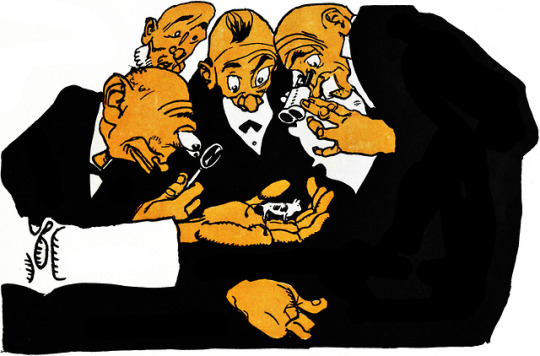
I hope that by the conclusion or abandonment of this thread that I have made a compelling case that Daniel C. Peterson is a lolcow, but in the course of doing so I also hope to show that entails Daniel being an anti-intellectual dragoman who earns his keep as a bureaucrat masquerading as a bargain-bin Mormon version of G. K. Chesterton.
(Post Track:
Kulning -A Farewell Song to the Cows)
ISBN 978-1-592-40504-6
Published by Cassius University Press
50 S University Ave, Provo, UT 84601
No rights reserved. Any part of this circus may be reproduced, stored in a retrieval system, or transmitted, in any form or by any means, electronic, mechanical, photocopying, recording, or otherwise, without permission of Cassius University Press.




